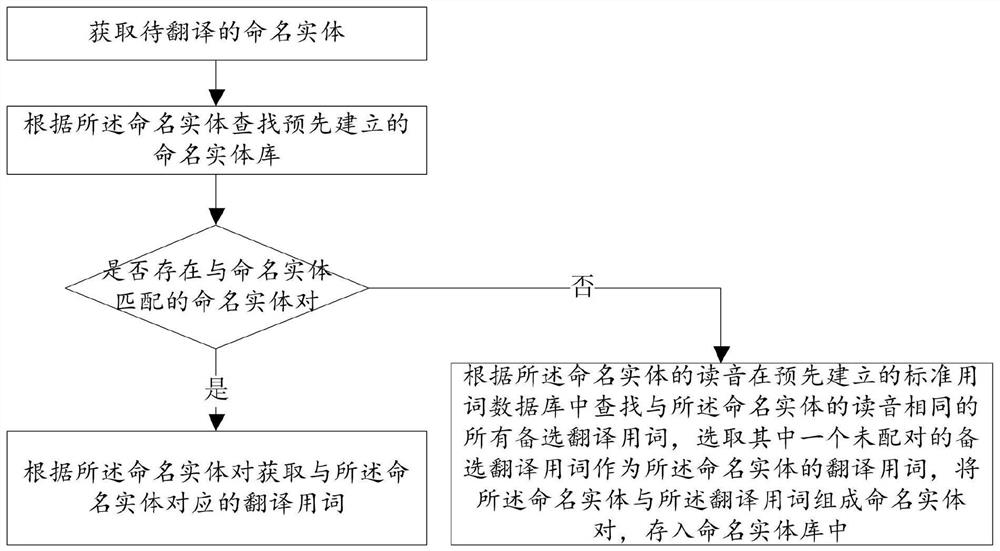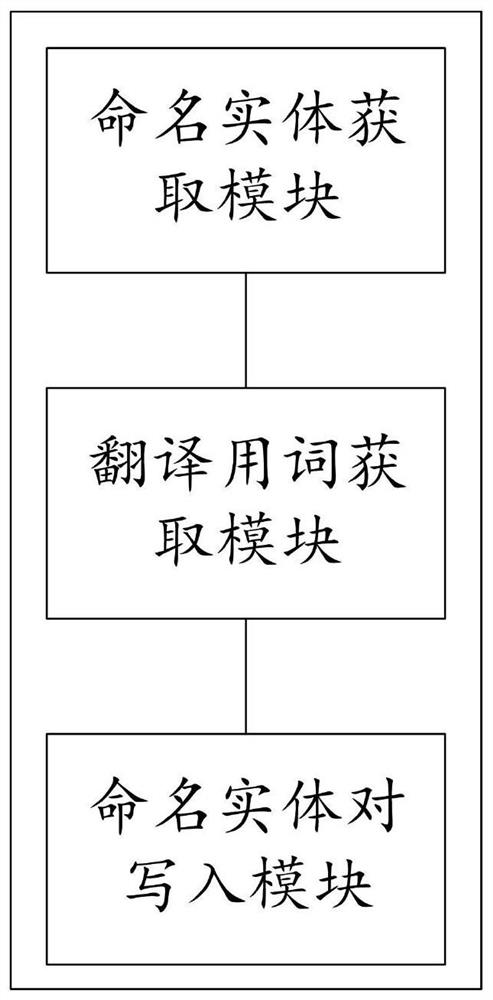A method and device for mutual translation of Chinese-Tibetan named entities
A named entity, Chinese technology, applied in the field of language translation, can solve the problems of different pronunciation of a word, impossible to achieve accurate restoration, multiple parts of speech, etc., to achieve the effect of improving accuracy
- Summary
- Abstract
- Description
- Claims
- Application Information
AI Technical Summary
Problems solved by technology
Method used
Image
Examples
Embodiment Construction
[0043] The principles and features of the present invention are described below in conjunction with examples, which are only used to explain the present invention and are not intended to limit the scope of the present invention.
[0044] figure 1 The flow chart of the method provided by the embodiment of the present invention. Such as figure 1 As shown, a Chinese-Tibetan named entity mutual translation method includes the following steps:
[0045] S1, obtaining the named entity to be translated;
[0046] S2, searching the pre-established named entity library according to the named entity, and judging whether there is a named entity pair matching the named entity in the named entity library, and if so, obtaining the named entity pair according to the named entity pair The translation word corresponding to the entity, otherwise, execute step S3;
[0047] S3, according to the pronunciation of the named entity, search in the pre-established standard word database for all trans...
PUM
 Login to View More
Login to View More Abstract
Description
Claims
Application Information
 Login to View More
Login to View More - R&D
- Intellectual Property
- Life Sciences
- Materials
- Tech Scout
- Unparalleled Data Quality
- Higher Quality Content
- 60% Fewer Hallucinations
Browse by: Latest US Patents, China's latest patents, Technical Efficacy Thesaurus, Application Domain, Technology Topic, Popular Technical Reports.
© 2025 PatSnap. All rights reserved.Legal|Privacy policy|Modern Slavery Act Transparency Statement|Sitemap|About US| Contact US: help@patsnap.com


